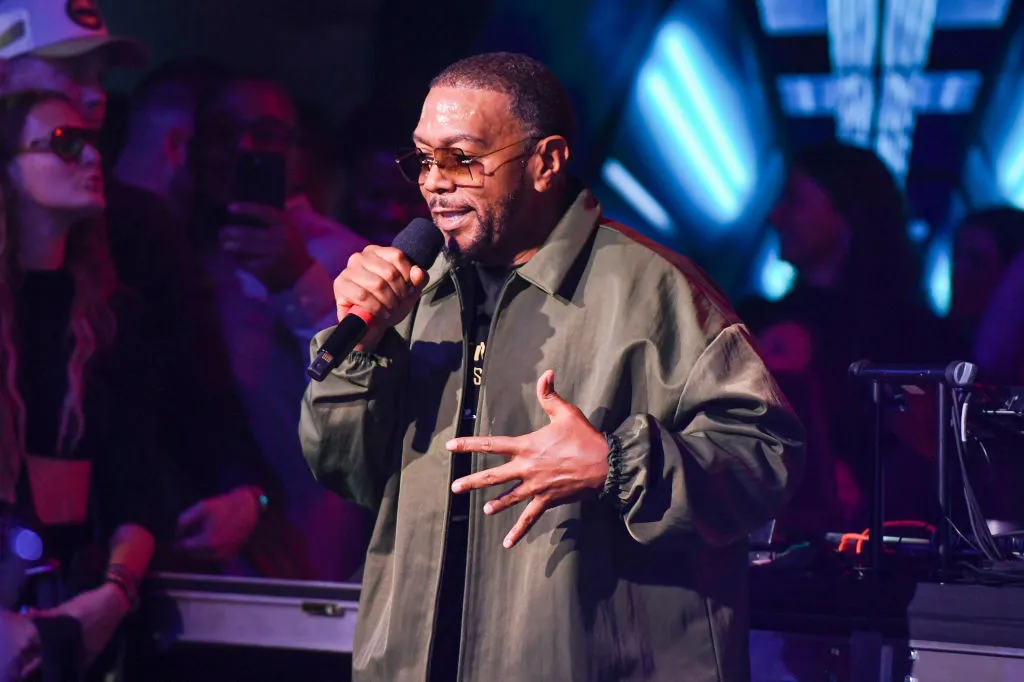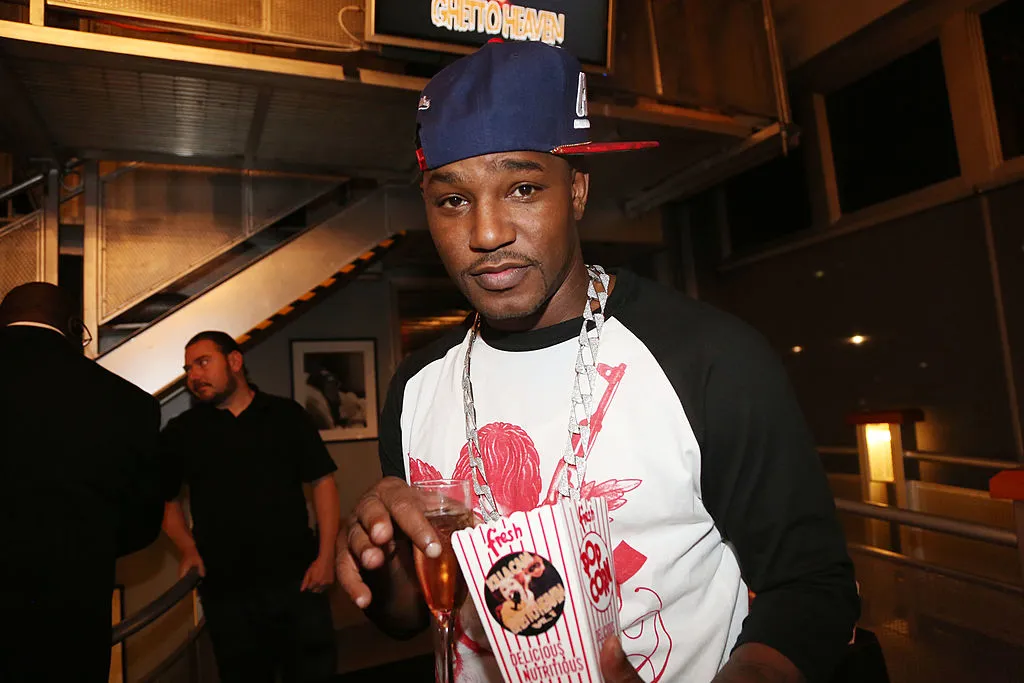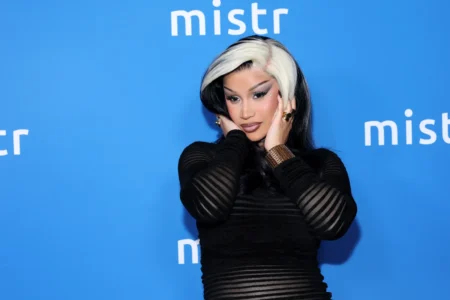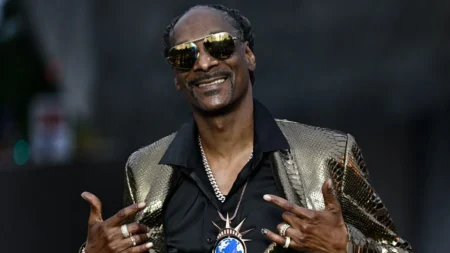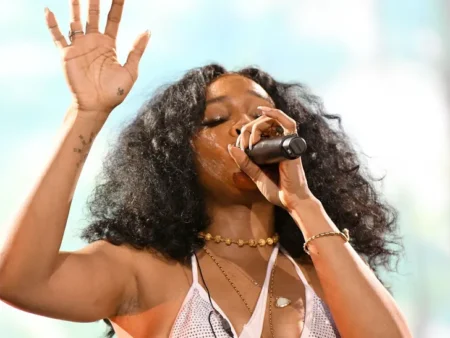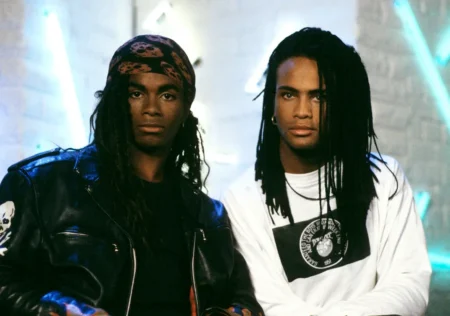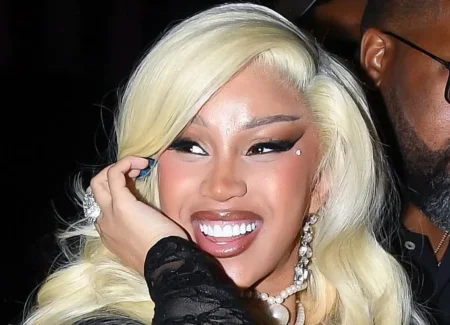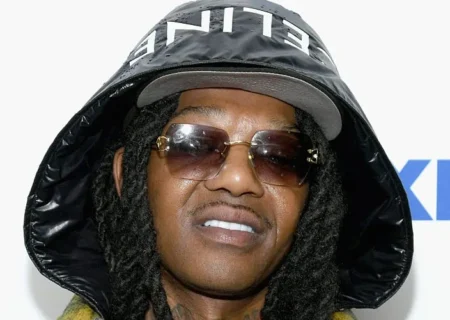Music legend Timbaland is once again making headlines—this time for stepping into the world of AI-generated music. But not everyone is on board with his futuristic vision.
On Friday, June 6, legendary producer Timbaland took to Instagram to address the growing backlash over the launch of his AI-generated pop star, TaTa, through his music company Stage Zero. The ambitious project aims to introduce a new genre called A-pop (Artificial Pop)—but while Timbaland frames it as innovation, many artists and fans are calling it a betrayal.
“I know I’m trolling, but let’s have a real conversation,” Timbaland wrote in a post.
“I love my independent artists. This doesn’t mean I’m not working with real artists anymore.”
Despite attempting to calm the storm, the post only added fuel to the fire.
The Rise of “A-Pop” and the Debut of TaTa
Stage Zero’s first major AI creation, TaTa, is being positioned as the face of a new genre—a blend of algorithmic sound and industry-savvy curation dubbed A-pop. Timbaland claims that TaTa won’t threaten human artists, but will instead “bring more creativity for creators.”
In a follow-up video, he spotlighted music executive Ray Daniels, who supported the move by comparing AI artists to iconic cartoon characters.
“Mickey Mouse is an AI character. Donald Duck is an AI character. Bugs Bunny is an AI character,” Daniels argued.
“Why the f*ck wouldn’t you [create an AI artist]?”
Daniels’ point: Characters have always sold songs, toys, and culture. AI artists are just the next logical step. But that analogy didn’t sit well with critics.
Artists and Fans Push Back: “This Comes at the Cost of Real Musicians”
The comments section under Timbaland’s Instagram post quickly lit up with criticism from fellow creatives and industry veterans.
British DJ Shy FX delivered a sharp rebuke, calling out the harmful implications of AI artistry.
“You call it trolling, but the moves you are making are not jokes,” Shy FX wrote.
“They are choices, and they come at the cost of real artists who are already fighting to be seen and heard.”
He also reminded followers of a previous incident in which Timbaland was criticized for using a deepfake AI voice of The Notorious B.I.G. in a song—a move many called disrespectful.
“You showed your colours when you attempted to make a song using Biggie’s AI-generated voice,” Shy FX continued.
“You made it even clearer by partnering with Suno, whose founder has openly stated he wants to replace musicians, not support them.”
Hip-Hop Journalist Rob Markman Weighs In: “Not the Same”
Respected hip-hop journalist Rob Markman also weighed in, particularly taking issue with Daniels’ Disney comparison.
“Mickey Mouse was created by a human, drawn by a human, written by a human, voiced by a human… not the same,” he said.
Markman argued that AI-generated characters like TaTa lack the human soul and cultural history behind iconic characters.
“None of those things are AI characters,” he emphasized.
“They’re the product of human creativity. Do you not see the resounding rejection you’re facing for this?”
Timbaland’s Response: “More Creativity for Creators”
Despite the criticism, Timbaland insists he’s not abandoning human talent. Instead, he believes AI can enhance creativity and open new doors for artists, not close them.
“Nah, I don’t train AI off y’all music,” he clarified in his post.
“This just means more creativity for creators.”
Yet skeptics point out that AI development almost always relies on data—often scraped without consent—from existing artists’ work. Even if Timbaland isn’t personally training AI with copyrighted content, his involvement with AI tool providers like Suno, who have been linked to such practices, raises ethical questions.
Industry vs. Innovation: Is AI the Future of Music?
The debate over AI in the music industry is far from new, but Timbaland’s high-profile embrace of it has reignited concerns. While some applaud his boldness, others argue he’s contributing to a dystopian future where human artists are commodified or replaced.
This isn’t just about technology—it’s about control, recognition, and respect.
Many fear a future where AI-generated songs dominate playlists, leaving struggling human artists without exposure or income. And with major players like Timbaland getting involved, those fears feel more real than ever.
Where Does This Leave Independent Artists?
Timbaland insists he still supports indie talent—but critics argue actions speak louder than words. Partnering with AI startups, releasing AI vocals of dead legends, and launching a synthetic pop star seem to send a different message.
“You’re not supporting artists—you’re replacing them,” one commenter wrote.
“You used to inspire. Now you’re cashing in.”
For independent musicians, already fighting against streaming algorithms and shrinking payouts, the rise of AI artists feels like another mountain to climb—one built by the very pioneers they once looked up to.
Final Thoughts: Genius or Sellout?
Timbaland has always pushed boundaries. From revolutionizing hip-hop production with Missy Elliott and Justin Timberlake to shaping the sound of the 2000s, he’s a known innovator.
But is AI artistry true innovation—or is it exploitation?
That’s the real question at the heart of this controversy.
As fans, creators, and critics debate the ethics of AI in music, Timbaland stands at the center—championing a future where characters like TaTa might share the charts with human artists.
Whether that future brings more freedom or further marginalization for real musicians remains to be seen.
????️ What do you think? Should AI artists like TaTa be part of the music industry—or do they undermine real musicians? Drop your thoughts in the comments.
???? Stay tuned for more updates on AI in entertainment, music tech debates, and insider interviews.




